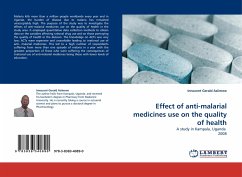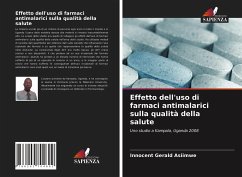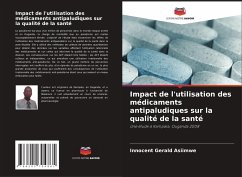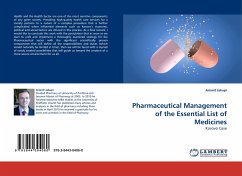
Effect of anti-malarial medicines use on the quality of health
A study in Kampala, Uganda 2008
Versandkostenfrei!
Versandfertig in 6-10 Tagen
32,99 €
inkl. MwSt.

PAYBACK Punkte
16 °P sammeln!
Malaria kills more than a million people worldwide every year and in Uganda, the burden of disease due to malaria has remained unacceptably high. The purpose of the study was to investigate the effects of anti-malarial medicines use on the quality of health in the study area. It employed quantitative data collection methods to obtain data on the variables affecting rational drug use and on those portraying the quality of health in the division. The knowledge on ACTs was very low; ACTs were expensive and unavailable leading to irrational use of anti- malarial medicines. This led to a high numbe...
Malaria kills more than a million people worldwide every year and in Uganda, the burden of disease due to malaria has remained unacceptably high. The purpose of the study was to investigate the effects of anti-malarial medicines use on the quality of health in the study area. It employed quantitative data collection methods to obtain data on the variables affecting rational drug use and on those portraying the quality of health in the division. The knowledge on ACTs was very low; ACTs were expensive and unavailable leading to irrational use of anti- malarial medicines. This led to a high number of respondents suffering from more than one episode of malaria in a year with the greatest proportion of those who were suffering the consequences of irrational use of anti-malarial medicines being those with lower levels of education.












